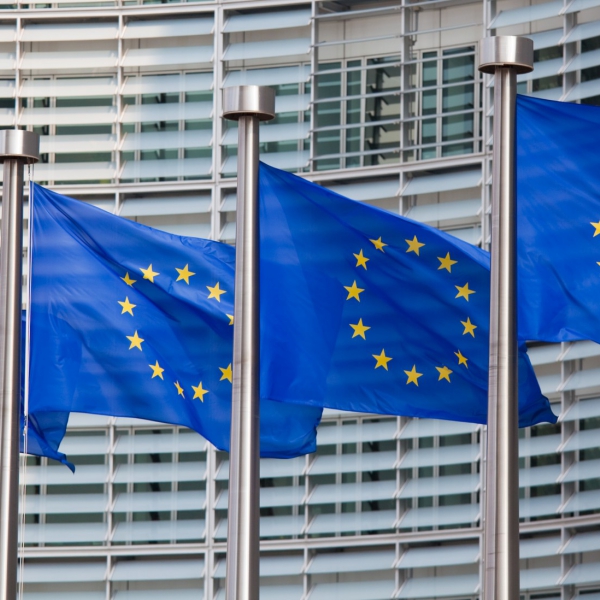The OBTAINS Project: In Focus
Interview with Jane Gordon, Data & Evidence Assistant for the World Obesity Federation.
You recently joined the data team at World Obesity to work on the OBTAINS project. Can you tell us about the project?
Jane: OBTAINS stands for Obesity Training and Information Services for Europe.The project has three key aims: (I) to improve the skills levels of health professionals across the EU, (ii) To improve the exchange of information and dissemination of evidence for policies and interventions, and (iii) to strengthen the evidence base for policies and interventions to address obesity. The project is funded by a European Union grant and supports our data, policy and education departments to develop our work, specifically in the European region.
What kind of work has the World Obesity Federation completed so far as part of the project?
The Global Obesity Observatory is our online interactive database of information about the prevalence and epidemiology of obesity. Users of the data site can find information about the levels of obesity in a specific country, related drivers of obesity, and relevant policies (national, local, fiscal and marketing) and community interventions. We use the data and information to develop country-specific reports. It is a great resource for anyone who wants to research obesity. The OBTAINS project has helped to support the development of the Observatory website, as well as the collation of European data on the Observatory. The project has also enabled us to create a European Atlas on Obesity. The Atlas contains detailed country-specific reports for every country in Europe.


The OBTAINS project has also contributed to our policy work. Since 2018 World Obesity has been developing policy dossiers to support policy makers, NGOs and stakeholders. The dossiers include a range of important resources including summaries and links to systematic reviews, cost studies, case studies, advocacy reports, recommendations and stakeholder position statements. Each dossier is supplemented by a World Obesity briefing paper which summarises the evidence available in the dossier and provides a series of recommendations for policymakers as well as a webinar on the same topic. Currently, we have nine dossiers available on a variety of topics, ranging from sugar-sweetened beverage taxes and front-of-pack labelling regulations to paediatric weight management, physical activity and COVID-19.
And lastly, the OBTAINS project has also helped to support the development of our SCOPE (Strategic Centre for Obesity Professional Education) courses. SCOPE training courses enable health professionals to improve their knowledge and skills to better support patients with obesity. OBTAINS funding has allowed us to expand the range of training modules we provide and the languages the courses are available in. We currently have SCOPE E-Learning modules in English, Spanish, French and Portuguese.

What does your role entail?
My role mainly involves researching to find up to date obesity prevalence data and then inputting this into our Global Obesity Observatory database for users to access. However, I also work on collating country-specific information on policies & interventions to build the evidence within the Observatory. Another element of my role is in assisting the policy team in the development of our dossiers, focussing on the production of policy briefings and identification of key studies which will be interesting to readers.

" The Global Obesity Observatory has data available on almost all countries of the world. " Jane Gordon Data & Evidence Assistant, World Obesity
What kind of content can our members find on the Global Observatory?
The Global Obesity Observatory has data available on almost all countries of the world. Information encompasses both adult and childhood obesity and includes data on how obesity prevalence varies depending on age, socioeconomic status, educational attainment level, ethnicity and region of countries. The Observatory presents information in a variety of ways, including via our interactive map, trend charts, downloadable publications and our comprehensive database of policies and interventions.
Is all the content downloadable for members?
All of our graphs are easily downloadable from the website. Users can even create custom charts using the ‘Chart builder’ function, where you can modify graphs with your own titles and export them as customised PDFs. We also have downloadable report cards on countries and regions available.
How often is the Global Observatory updated?
The Observatory is updated almost every day as an ongoing process – as data is released or becomes available. My role involves searching for and updating data manually. I obtain data from national health departments, literature searches, and via our invaluable member network. All data published on our data site follow strict inclusion criteria and full citation references are provided.
What have you found most interesting about your role so far?
During the process of researching and reviewing data, I have enjoyed discovering more about the epidemiology of obesity, and how factors such as education, socioeconomic status and ethnicity influence these patterns. It is an interesting time to be a part of this field, given the current spotlight on obesity and COVID-19. The data show that people living with obesity have a greater risk of severe illness and even death if they contract COVID-19. We hope that one of the outcomes of the pandemic is a renewed focus on addressing obesity.
Find out more about the Global Obesity Observatory
Find out more about the Global Obesity Observatory
Learn more